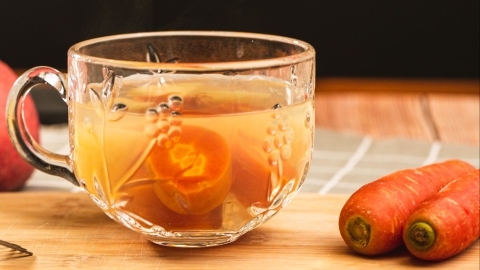Can patients with gallstones eat carrots?
In general, patients with gallstones can eat carrots, as long as they do so in moderation. Here's a detailed explanation:

Carrots are low in fat and therefore do not stimulate excessive gallbladder contraction or bile secretion, reducing the burden on the gallbladder and making them suitable for individuals with gallstones. Carrots are also rich in beta-carotene, vitamins, and dietary fiber. Beta-carotene can be converted into vitamin A in the body, helping maintain the health of the digestive tract mucosa. Dietary fiber promotes intestinal motility, aids digestion, and prevents discomfort caused by food accumulation. With their soft and tender texture, carrots are easy to chew and gentle on the digestive system, providing essential nutrients to the body.
When consuming carrots, it is recommended to use light cooking methods such as steaming, boiling, or stir-frying with minimal oil. Avoid eating large amounts at once, as excessive intake may lead to bloating. If the patient is experiencing an acute episode, dietary adjustments should be made temporarily; small amounts of carrots can be reintroduced only after the condition stabilizes. It is important to maintain a balanced diet, have regular follow-up examinations of the gallbladder, and adjust dietary habits according to medical advice.




